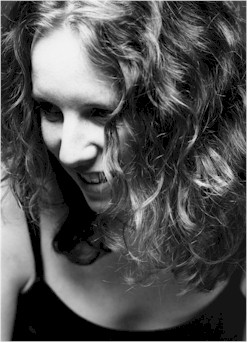House of the Gods
 Earlier this month (October 3 and 4), the Royal Opera House at Covent Garden featured a new opera, House of the Gods, with music by Lynne Plowman and libretto by Martin Riley. Anna Picard reviewed it (At home with the Gods, October 8) for The Independent:
Earlier this month (October 3 and 4), the Royal Opera House at Covent Garden featured a new opera, House of the Gods, with music by Lynne Plowman and libretto by Martin Riley. Anna Picard reviewed it (At home with the Gods, October 8) for The Independent:
House of the Gods, Lynne Plowman and Martin Riley's second opera for Music Theatre Wales, is billed as a gothic horror comedy. A tale of blood-sacrifice, pseudo-science, bare-knuckle boxing and Aberystwyth B'n'Bs, the opera works hard to raise a smirk in Michael McCarthy's energetic touring production, but fails to provoke any chills. In its purest form - young man discovers sinister secrets in a cellar - it could have been both comic and horrific. But Plowman and Riley have made their WWI mystery a metaphor for, you guessed it, Iraq, with a sub-plot involving the retirement plans of three Celtic gods.Picard reviewed this opera with other productions of The Cave, Steve Reich and Beryl Korot's 1990-1993 triptych, and the Richard Jones staging of Shostakovich's Lady Macbeth of Mtsensk.
Home on leave from the front, Jack (Mark Evans) is a Tommy Atkins whose shell-shock equals battle fatigue, equals Gulf War Syndrome, equals post-traumatic stress disorder. Ma (Fiona Kimm), the doyenne of the Docklands pub Jack is sheltering in, juggles a side-line in "French Lessons and Swedish Massage" with her role as the goddess Morrigu, and dreams of retiring to Wales. Her husband, Da (Andrew Slater), is a drink-sodden incarnation of Dagda, who laments the pre-machine-age battles of his youth. Meanwhile, poor, mad Lily (Louise Cannon), who has been brought up as their daughter, is being sexually abused by her necromantic "uncle", Crom Cruiach (Philip Sheffield), who is working on a potion to create the ultimate weapon of mass destruction: a soldier without fear.
It says much for Riley's vernacular that the libretto does not trip over this surfeit of sub-plots. Though Crom, Jack and Lily are little more than cyphers, Ma and Da are sympathetically drawn, with much the best material, and much the best performances. (Kimm's sex scene is worth the price of admission alone.) Plowman's scoring is remarkably efficient and economical, with crisp figures for trumpet and snare, and pointillist miniatures for harp, pizzicato strings and tuned percussion, deftly realised by the ensemble under conductor Michael Rafferty. You get the sense that Plowman could write in almost any style if she wanted - cabaret, music hall, Victorian hymns, Irish folk music, I-Can't-Believe-It's-Not-Britten, and pseudo-Stravinsky feature in House of the Gods - and that she is having a ball with her tight management of only 11 instruments. The downside to this versatility is that it is hard to identify which of the many voices she adopts is her own.





















































No comments:
Post a Comment